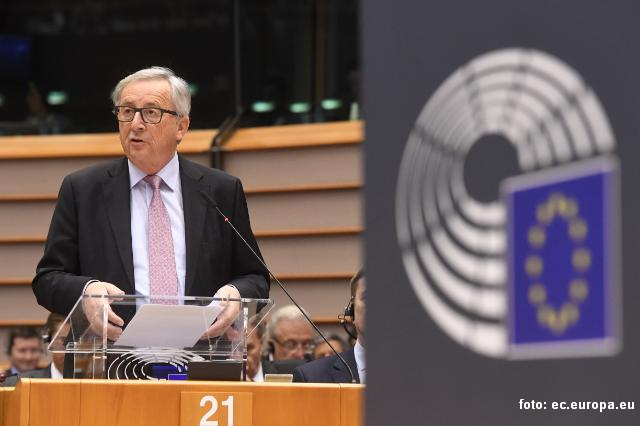Romania opposes a multi-speed Europe
European Commission President Jean-Claude Juncker on Wednesday outlined 5 scenarios regarding the future of the EU post Brexit. Romania has argued against a multi-speed Europe.

România Internațional, 02.03.2017, 13:36
Romania does not want a multi-speed Europe, because such a reform of the EU would lead to the collapse of the European project, Romania’s president Klaus Iohannis said on Wednesday during his meeting in Bucharest with Joseph Muscatta, the Prime Minister of Malta, a country currently holding the six-month rotating presidency of the EU. President Iohannis made the announcement shortly after European Commission President Jean-Claude Juncker presented his so-called White Paper on the future of the European Union after Brexit. The document outlines 5 possible scenarios, looking at the changes Europe will undergo over the next 10 years, from the social impact of new technologies and jobs, uncertainty linked with globalization, security threats and the rise of populism.
According to one scenario, the EU will continue to implement the current agenda of reforms as stipulated by the Bratislava Declaration of 2016. A second scenario shifts the EU’s focus solely on the single market, meaning that member states will no longer tackle issues such as migration, security and defense with shared decision-making. The third scenario proposes a two-gear Europe allowing individual member states to cooperate in specific policy areas depending on the level of progress. The Schengen Area in this respect is a case in point.
Scenario number four envisages a Europe that focuses on a number of priorities, such as security, the fight against terrorism or telecommunications so as to obtain faster results. Finally, under the heading “doing much more together”, the final scenario seeks to deepen European integration. The White Paper has already sparked heated reactions amongst MEPs.
Romanian Social-Democrat MEP Victor Bostinaru has criticized the multi-speed EU format: “We are against a two-gear or multi-speed Europe, which is a dangerous concept. The timing of it being brought to the table couldn’t have been worse. This proposal is bound to generate further tension, concerns, frustration and even humiliation, including in societies that truly believe in the European project, such as Romania, and which are willing to fully cooperate for the consolidation of the EU”.
In turn, EU Commissioner for Economic Affairs Pierre Moscovici has warned that the White Paper provides for the possibility to dismantle the EU altogether, an option that must be given due consideration just as the rest. The document will be transmitted to EU leaders at the Summit in Rome, on March 25, marking 60 years since the foundation of the European Union. The White Paper marks the beginning of a process by means of which the 27 countries that will remain in the EU will decide upon the future of the Union.






























